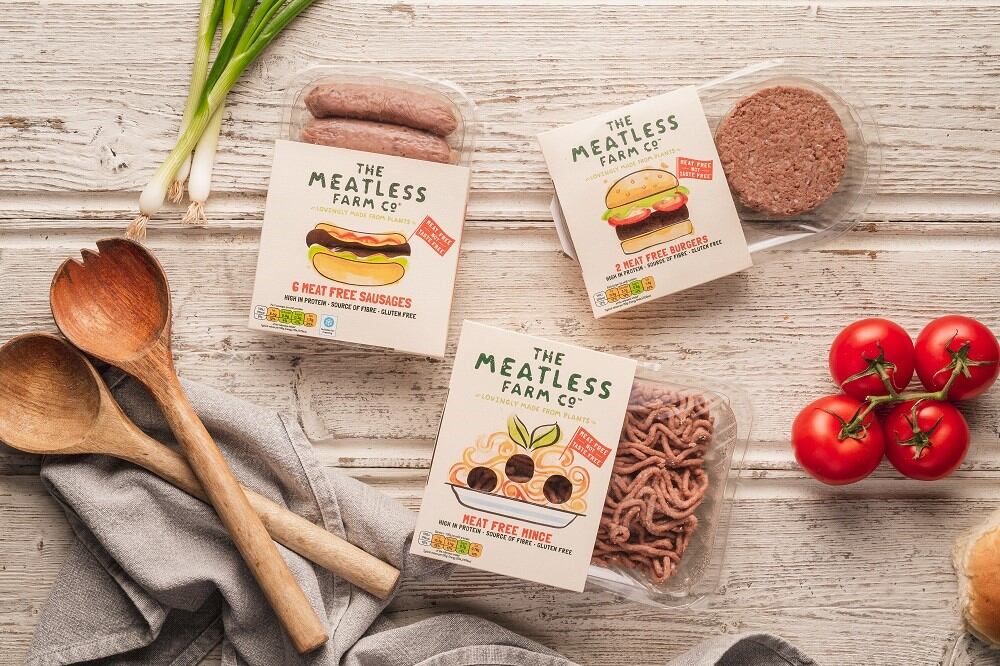These are heady times for veganism and the plant- based movement. From meat alternatives to faux fish, vegan options have become commonplace in supermarkets in the past 12 months, with an explosion of innovation across the sector.
In 2018, one in six food products launched in the UK were described as vegan or free-from animal products, according to Mintel. By 2019, that had increased to one in four – and if the flurry of NPD launches coinciding with this year’s Veganuary is anything to go by, expect that proportion to shrink even further this year.
But as the market grows, so does the threat of saturation. As vegan and flexitarian diets become more mainstream, manufacturers will have to work harder to make their products stand out, while also meeting more stringent demands on health and sustainability.
While most of the media attention surrounding vegan innovation has focused on plant-based meat substitutes, helped by high profile launches from the likes of Greggs, KFC and Burger King, there has also been plenty of innovation bubbling under the surface in the functional ingredients arena. Plant-based proteins, fibres and starches are all helping to open up new possibilities for manufacturers to take a slice of the vegan pie.
New protein sources
For Hydrosol, protein sources like peas, rice and fava beans are increasingly coming to the fore, as soy’s popularity wanes. The German company claims to have overcome the challenges of using different proteins by having built up a solid and growing database on their respective characteristics.
This is vital, suggests Dr Dorotea Pein, director of product management at Hydrosol, as not every protein is suited to every application. “It is not possible to determine the ideal protein source without first precisely defining the desired character of the end-product,” she cautions. “Ultimately, only flavour and texture will determine whether a product is purchased more than once.”
When formulating plant- based products, food and drink manufacturers must ensure they develop the “perfect texture” for their product, concurs Severine Bensa, regional growth platform leader for marketing at Ingredion, which recently launched Vitessence Pulse 1803 – a protein isolate derived from pea.
“This is particularly the case when a product recipe is altered in some way, either by removing or adding ingredients,” says Bensa. “Consumers often have an existing memory or expectation of what the eating experience should be and are likely to notice any deviation.”
Despite the influx of plant-based products onto supermarket shelves, Bensa believes there is still plenty of room for innovation as the category expands into new and more diverse applications, such as biscuits, bakery and ready meals. Much of that growth, she argues, will be in the rapidly growing flexitarian segment.
Competing for consumers
“Speed-to-market will become a key attribute for differentiation, as food producers compete for consumer purchases,” Bensa says. “Manufacturers need to be innovative and on-trend at a fast pace because, with or without their product on the shelves, a consumer will find something that meets their wants and needs.”
With consumers becoming increasingly aware about their food choices, both from a health and sustainability point of view, plant-based products are now falling under the same scrutiny as the rest of the food market.
“It’s not enough for products to just be vegan any more – consumers are trusting big companies less and less and the need for brands to be sustainable is growing rapidly,” says Hannah Carter, founder of vegan desserts maker Oggs. “As demand for vegan products has taken off, so too has the availability of vegan ‘junk food’ equivalents, so the assumption that all vegan food is healthy is becoming less of a reality.”
Karen Deans, managing director at frozen ‘scoop your own’ specialist Field Fare, even suggests that it’s “dangerous” to think plant-based alternatives are always healthier.
“Plant-based sticky toffee pudding is still going to pack a lot of sugar,” she claims. “And many meat substitutes contain more fat and sodium than a traditional beef burger. But ‘vegan’ has such positive connotations of health and responsibility that products can tend to escape such scrutiny.”
Complex market
While acknowledging that the market is becoming increasingly complex, Sylvain Jouet, global product manager for protein at Givaudan, reckons that, in general, plant-based products can offer a healthy alternative for many people. “Some of the concerns publicised are often perception- based and can be overcome with a better understanding of how and why particular ingredients are used,” suggests Jouet.
“For example, there is a concern about plant-based products being over-processed. However, you’ll find the texturisation process necessary to make many meat alternatives is very similar to the process used for making bread.”
It would help consumers to look at specific market products as examples when assessing their healthiness, says Jouet.
“A comparison of published nutritional information of a leading foodservice burger and its plant-based counterpart shows that while the plant- based version has a higher salt content, it is significantly lower in trans-fat and cholesterol than its meat counterpart,” she explains. “For some, this will make the difference in their decision to purchase or not.”
The health attributes of plant-based products aside, there is a consensus that both demand and competition will continue to increase. For Deans, this is likely to create a “wheat from chaff” situation, with products of inferior quality or lacking in innovation falling by the wayside.
“Plant- based will need to respond to market trends, which look set to remain with international flavour adventures, street food recipes, active ingredients and impressive nutritional claims,” she says. “Brand winners will be those that react accordingly.”




